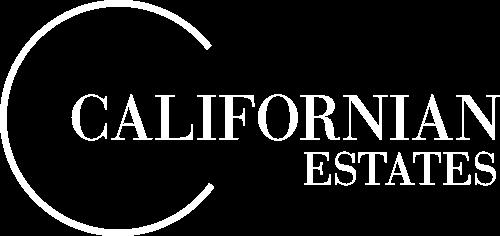Real Estate
More Than Just The Sun That Makes This Market So Vibrant
Located amongst breathtaking

sweeping
majestic mountains, the bounty of agricultural farmlands and pulsating cities rich with cultural diversity, California has it all for any homebuyer or real estate investor. Beyond its beauty, California’s strong economy and robust workforce make it a force to be reckoned with. In fact, if separated from the United States, California’s $2.3 trillion economy ranks 6th in the world by GDP (bypassing countries such as Italy, Russia, India, and Australia) with California moving closer to the GDPs of the United Kingdom, according to the Bloomberg News.
A healthy economy, diverse and thriving industries and plenty of job opportunities mean that the California real estate market is a resilient market and in high demand. Combine this with perfect weather year round and an enviable lifestyle; there seems to be no shortage of buyers and property values continue to rise. Zillow reports that California home values have gone up 7.1% over the year (October 2016-2017) and predicts they will increase 2.5% within the next year. Your home is perhaps your family’s most significant investment. Knowing that you are buying in a highly desirable market will instill confidence in your purchasing decision.
The process of buying a first home can often be intimidating with all the financial paperwork, home disclosures, inspections, and escrow. The Californian Estates Buyer’s Guide will lead you through some of the basic steps to getting into your new home. However this informative overview doesn’t replace the wisdom and experience of a great qualified real estate professional, so whatever you do, don’t break the first golden rule:

Don’t Be A Third Wheel Have a Great Buyer’s Agent Who Will Be Your Advocate
Many first-time homebuyers think that they can search homes, negotiate terms, pricing and contracts by depending upon the guidance from the listing agent. However, the listing agent (or Seller’s Agent) has a fiduciary duty to their client and is contractually bound to get their client the highest price and best terms. Where does that leave the buyer?

In other words, if you were being sued would you ask the lawyer for the prosecuting party to represent you? Of course not. Get an advocate on your side. The best part about it, the seller pays the commission for the buyer’s agent, so it costs you nothing to have this expertise and guidance working for you.
Nothing can replace the educational value of a great (not just good) sales agent. Your buyer’s agent that will provide you with the best-localized information, including inventory and market trends. Choose an agent who excels at communication and is committed to prompt follow-through. Especially for a first-time homebuyer, there is a lot of education involved in your choice and purchasing of a home. Your agent will help you evaluate the lending terms, negotiate pricing, prepare for every step of the escrow process and help you smoothly conclude the closing process so you in your new home.
Access to Information is key. Your agent will have access to the most updated information through the MLS (Multiple Listing Service), which is not available to the unlicensed public. Browsing sites like Trulia and Zillow are wonderful resources to start understanding what’s on the market. However, these sites aren’t always up to date and won’t provide the kind of information that your agent has access too. This power of information will help you make the best choices. Going into a home sale without being represented is like being a third wheel. Put yourself in a position of control and find a great Buyers Agent to represent you.
If you were being sued would you ask the lawyer for the prosecuting party to represent you? Of course not! Get an advocate on your side.
Talk To A Loan Specialist And Get Pre-Approved To Act Swiftly When You Find Your Perfect Home


It’s heartbreaking to get emotionally attached to a home and envision your family spending years of happiness there only to then realize it’s out of your price range or someone else’s offer has been accepted because your loan process is delayed due to missing information. In the Californian market, homes sell fast! Sometimes they move as quickly as five days on the market. So, get your financial house in order first, so that you are prepared to act swiftly when you find your perfect home.
Before you start viewing homes, get a mortgage broker or loan specialist who will determine net worth and creditworthiness. Start early and review your financial situation six months before you plan to buy a home, at a minimum. A First Time Buyers may want to proceed with this step two-three years before they begin the home-buying process. This counseling will allow time to understand the loan process, give time to repairs any negatives on the credit report and plan in advance for a down payment.
The goal here is to get pre-qualified and pre-approved so have as much employment and income information as possible. If you are self-employed, be prepared with tax returns for the past two-three years. Don’t hold anything back from your mortgage broker/banker. They are there to help you so disclose everything.
Your credit matters so be vigilant about your FICO score. Pay off credit card balances and minimize your credit inquiries. Keep your debt obligations low as any debt increase will escalate your interest rate and negatively affect your loan terms. Don’t co-sign another loan or make any big purchases (like a car or big furniture purchases) six months before you try to get your home loan.
You must prove that you are financially stable so don’t change jobs or become self-employed six months out. Have your deposit in a bank account six months in advance to show the bank and lender that you are financially sound.
Be Realistic About What You Can Afford
Paying your monthly financial obligation for your home will include your mortgage, 1/12 of your property tax and insurances. It’s crucial to understand all of these payments, and plan for them, so that you can be sure that you really can live with your new home commitment before you sign the contracts.
Test your ability to comfortably pay your projected monthly obligation six months before you plan to make your home purchase.
Test your ability to comfortably pay your projected monthly obligation six months before you plan to make your home purchase. Working with a loan specialist, determine your full monthly costs of mortgage, tax and insurance will be for your prospective home. Subtract your rent from this number and pay the difference into a savings account. This will reaffirm your degree of comfort with the proposed financial commitment and ascertain its impact on your other
Approaching Home Loans Getting your Financial House In Order

Most lenders will use automated underwriting tools that consider your basic information and calculate your credit scores, debt-to-income ratios, and other factors to determine appropriate loan sizes, rates, and fees. Remember, they are in the business of lending money, but their job is to mitigate risk. So, be ready to prove why you are a safe gamble.
It is crucial that you fully understand your credit report and FICO score when preparing for a mortgage loan. Any inaccuracies will delay your entire loan process. Get ahead of the game, and vigilantly monitor your credit report and FICO scores from all three agencies before starting your loan process. Healthy credit will be a critical factor when determining the sorts of loan rates and terms your lender will offer. You can access your free credit reports once a year.
Income stability is another consequential factor your lender will consider. Be prepared to show all documentation of your income, including employment payment records, two years of IRS filings if you are selfemployed, bank accounts, 401(K) funds and other assets. Your lender will calculate your debt-to-income ratio. In other words, how much do you earn and how much do you owe? Have a thorough understanding of your current household expenses. The lower your debt obligations, the higher home price will be able to finance. Prepare at least six months before procuring your loan. Mitigate as
many debts as possible (like paying off credit cards). Don’t take on any new ones (buy the new car after your new home loan). Don’t co-sign for any loans. Eliminate all inquiries into your credit as well.
Mortgages will be either fixed-rate or adjustable-rate. A fixed-rate mortgage establishes a rate for the duration of the term which is generally 15, 20, or 30 years. Knowing that your interest rate won’t fluctuate will allow you to confidently budget your monthly mortgage without any surprises. The downside is that these rates tend to be higher than the adjustable alternatives. Fixed rate mortgages will be especially advantageous for homeowners who plan to stay in their property for at least 5 years or more.
Adjustable-rate mortgage (also known as ARM) are available in 5-year, 7-year, and 10-year fixed-rate periods with a 30-year term. As interest rates increase and decrease and your payments will also change at each scheduled adjustment date. Pay attention to the "rate caps" in your loan terms as they will outline the minimum and maximum rate that you will ever pay. ARMs often offer a lower “introductory” rate during the initial fixed rate period. You may want to take advantage of this low rate if you know you will sell your home within the defined period.
Lenders are in the business of lending money but their job is to mitigate risk.
So, be ready to prove why you are a safe gamble.
Explaining Home Loan Options One Size Definitely Does Not Fit All
When it comes to home loans, one size definitely does not fit all. There are many choices available so carefully consider each one with your loan professional.
FHA (Federal Housing Administration) Loans: These federal government-backed loans are ideal for someone who has minimal cash for a down payment, allowing as little as 3.5% of the sale price. The FHA doesn’t use credit scores to determine eligibility or interest rates. This may be ideal for someone with a less than perfect credit history. FHA loans generally offer more competitive rates than commercial lenders since the federal government insures these loans. The maximum one can borrow in an FHA loan varies by location, i.e., $271,050 for single-family homes in low-cost areas to $729,750 in high-cost cities such as Los Angeles or New York.
VA Loans: If you are a Veteran there is no better option than a VA (Veterans Affairs) loan. VA loans require no down payment or monthly mortgage insurance.
Conventional Loans: Conventional loans are designed to be sold to Fannie Mae and Freddie Mac (the governmentchartered secondary mortgage market and the biggest purchasers of home loans issued by private lenders) and must conform to all of their requirements. As a result, conventional underwriting rules tend to be more strict. But, if you have a credit score of at least 740 and can put 20% or more down, then a conventional loan will give you the most competitive rates and terms available. A 10% down payment may also qualify you for a conventional loan, but you will likely be required to pay high private mortgage
20:80. Banks may impose add-on fees which will increase your cost so be sure to fully examine any additional costs.
Bridge Loans: These loans are essentially stop-gap measures, short-term (six to nine months) financings that are designed to help a homeowner who is in a timing squeeze. Imagine a homeowner wants to buy a new home, but their current home hasn’t sold yet. Accordingly, he or she cannot put down a proper down payment on the new home because their cash is still tied up. The bridge loan will advance the homeowner the money using the equity in the current home as collateral. Once the house sells, the proceeds pay off the bridge loan.
Bridge loans generally have higher interest rates than regular mortgages, in the neighborhood of two percentage points higher. Remember that these loans are designed to be short-term so if the home doesn’t sell within the designated timeframe, things could get complicated.

The best advice is to find a great mortgage broker or loan professional. A smaller local lender may have better knowledge of the local marketplace and more interest in investing locally. However, mortgage brokers will have access to a wide range of loan products. Get references from your friends or real estate agent and then do your homework to vet them accordingly. Beyond good credentials, find a good mortgage banker who can clearly explain the details of each loan option so that you can best determine which is best for your specific situation.
Beyond good credentials, find a good mortgage banker who can clearly explain the details of each loan option so that you can best determine which is best for your specific situation.
Your 2019 xxx
Home is an Investment How Do You Want To Build
A home is often someone’s biggest investment so consider your housing needs as well as the investment opportunities it presents. If you are a First Time Home Buyer, you may want to take the long-range approach to building equity. Consider buying a smaller property to do so. As the home appreciates, you can sell that small property and parlay the proceeds into a bigger home
There are great deals in the Foreclosure and Short Sale market if you are willing to navigate some of the complexities of those sales (preferably with the advice of your qualified Buyer’s Agent). This is a good option for someone who can see the value and possibilities of a distressed home and assess the cost of the needed repairs. There is real profit potential in buying and building equity in a below market house while renovating the home for increased value. Put it back on the market and sell it for the new market value and you are in a good position to make a profit which can be invested into a bigger home.
If you are prepared to live with or very close to tenants, consider a duplex or triplex. With their rent going towards your equity you will build equity quickly.
Perhaps you have a family and want to move into a place a settle down without hassle. A Single Family Residence (or SFR) is still your best option for building equity. Carefully examine what your needs will be 5- 10 years down the road and work with your real estate professional to chart the best way forward in your investment strategy.

Your Buyers Agent will help locate a selection of homes with your specified list of amenities in your desired neighborhood and price range. But before falling in love with any of them, step back and take a look at some of the practical issues to consider.
How much will it cost for heating and electricity? If you are used to a small apartment, it may seem desirable to move into a spacious house. Just remember that bigger homes mean bigger utility bills.

When renting, a tenant can call their landlord to take care of repairs. Especially for a First Time Home Buyer, it’s critical to remember that home repairs will now be solely his or her responsibility so don’t overlook these maintenance and repair expenditures. Carefully evaluate these costs. For example, a new roof for a large home will be significantly more expensive than a new roof for a small bungalow.
Apartment living means little to no exterior and landscaping work. Don’t neglect to factor in these costs for you home. Same rule as above applies: the larger the house, the costlier exterior expenses will be. The larger and more elaborate the lawn and garden, the higher these landscaping costs.
Condos and townhomes often have Homeowner Associations (HOA) that require monthly fees for the common areas. The HOA also establishes restrictive covenants called CC&Rs. Make sure to review all of these restrictions as well as the minutes from the last six months of meetings. You don’t want to move in with your beloved cat only to find out they have been considering a pet ban. Once you have examined these often-overlooked expenses and factored them into your total expenses, you will be better prepared to make a wise decision choosing your new home.
Familiarize Yourself With All Neighborhood Options What Are Your Priorities?

We’ve all heard it... Location, Location, Location. But it’s also subjective based on a homeowner's needs. Do you have kids and want to prioritize living in the best school district? Are you willing to commute further in favor of a more suburban lifestyle or is proximity to work the most important aspect?
After having narrowed down your favorite communities, drive them at different times of the day and night to get a feel for each neighborhood. Does it feel inviting and safe? Could you imagine raising a family there? Is there a desirable neighborhood feel?
If schools are important, Greatschools.com is a helpful resource for comparing schools and their ratings.
Sperling’s Best Places, another helpful nationwide resource, compares communities across a number of metrics like crime, schools, cost of living, etc.

Be realistic about the cost of these neighborhoods and don’t forget that different cities may have different tax ramifications. This is particularly important in a dense megalopolis like Los Angeles in which different incorporated cities (like Beverly Hills and West Hollywood) sit right next to other LA neighborhoods. One street could make a big difference. Your Buyer’s Agent will help you consider the benefits and downsides of different neighborhoods so that you can make an informed decision.

Be Prepared For Escrow And Closing It’s All About The Details

Houses often receive multiple offers. A higher offer is obviously very attractive to a seller. But an offer that appears to have a more comfortable escrow and with more assurances that it will close may win out even if the offer is less than the others. Get ready for escrow, and stack the cards on your side, by following a few helpful tips.
Getting pre-qualified and pre-approved for your loan will put you in a power position when you find the house you love. That letter from the bank will give the seller confidence that the escrow will encounter few problems.
Be ready to pay an earnest deposit when you submit your offer. This deposit will cost approximately 3% of the sale price of the home. When escrow closes, the deposit will be credited towards your amount due. However, if the deal falls through due to the fault of the buyer, the deposit may be lost, depending on how the purchase contract is written. Importantly, it communicates to the seller that you are serious about the offer. A larger earnest money deposit may allow your bid to win out over another’s.
First Time Buyers often neglect to consider all of the closing costs. These can include inspections, title search, and insurances, appraisal fee, etc. Have 2-7% of the price of the home in your bank so that you can comfortably cover these costs as they come up.
Checks on your credit, employment, and financial statements will occur throughout escrow. If you buy a car or get involved with another big debt obligation during escrow, your loan-to-value ratio will go up along with your interest rates. Other negative impacts to the term of your loan will occur if you change jobs, allow inquiries into your credit or spend any part of your down payment. Altering the terms of your loan will also mean that escrow will be delayed.
If you are paying less than 20% for your down payment, be prepared to pay Private Mortgage Insurance (PMI) which covers lenders in case of default. Your monthly payments will increase to include this fee until that 20% amount has been satisfied.
Once your offer is accepted, make sure you get a thorough inspection from a licensed professional. Don’t sign off on any contingencies before you have these inspections and negotiate any issues with the seller before moving forward. Do a final walk-through to make sure that there is no damage that wasn’t there before, such as damage that furniture previously hid or damage caused by the movers.
When you are ready to close the deal, you will come to the closing ready to sign a lot of paperwork and to pay your down payment and all the closing costs. It’s advisable to have your attorney present for any legal counsel you may need.
Californian Estates
Connects Knowledge, Experience and Committed Service to Empower Your Vision
Californian Estates is a unique real estate company that innovates strategies, develops creative solutions, and leverages a vast network of agents, clients, and properties to facilitate real estate selling and purchasing to achieve earnest value for its clients.

Founder and CEO Maurice O’Sullivan brings 30 years of successful marketing and sales experience within some of the hottest real estate markets throughout Asia and Europe, achieving sales in excess of US$1bn. Under his experienced direction, he has been at the helm of multinational real estate sales and development companies and large teams of agents who have earned similar success. He now brings this success to California through Californian Estates, Inc.
California has proven to be one of the most desirable places to live and do business on the planet. Consequently, it’s among the favored destinations for many savvy investors. Therefore, it was a natural next step to expand his business to America’s West Coast, showcasing the vibrant, diverse and consistently sought-after real estate market in California to regional, national and worldwide audiences.
Californian Estates is the culmination of his vast experience, knowledge, and network of relationships in the global and local real estate market, it is uniquely positioned to connect local sellers and developers with a worldwide audience of buyers and investors.

Californian Estates is committed to local, regional and international buyers and sellers. Our pledge to all of our clients is unwavering and resolute: Californian Estates will deliver exemplary personalized care, exercise the highest degree of discretion, communicate an in-depth understanding of Californian real estate market trends and provide unparalleled guidance and information so that every client has the power of knowledge on their side.
MAURICEWOOLF CEO

Maurice, originally from the United Kingdom, started his real estate career in the prestigious town of Marbella/Puerto Banus in Spain on the Southern coast of Andalucía. Maurice excelled at marketing and selling luxurious real estate to European investors.
In Asia, Maurice was an agent for one of the most successful resort properties in the region. He earned the prestigious position as Group Marketing Director Asia Pacific. Through his lead generation he push the brand to new heights that eventually sold over 16,000 properties and over US $1 billion in sales worldwide, making them one of the biggest developers in the Asia Pacific region. Maurice brings with him massive international agency connections on a global scale for lead generation.
Maurice is excited about the prospect of moving his company and brand Californian Estates, Inc. into the International arena and is relishing the challenges ahead.
